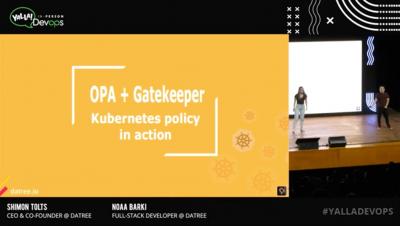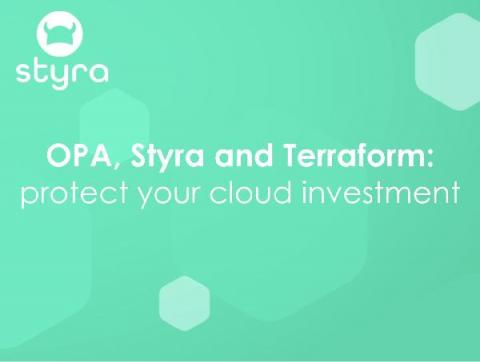Security | Threat Detection | Cyberattacks | DevSecOps | Compliance
DevOps
Deep-dive into Open Policy Agent + Conftest + GateKeeper - Shimon Tolts & Noaa Barki
OPA, Styra and Terraform: protect your cloud investment
The shift to cloud-native has transformed the way organizations do business, keep up with the competition and meet the demands of customer expectations. From the infrastructure that maintains IT operations to the applications that supply customers with the ability to interact with their data, the velocity in which DevOps teams have to deliver these services has significantly increased, leaving little to no room for error.
How Snyk is normalizing authentication strategies with Gloo Edge
Snyk supports multiple authentication (authN) strategies on its APIs. Historically, API keys have been the primary form of authN, but more recently we introduced support for authN using signed JWTs produced as a result of an OAuth integration. This is currently in use by both our AWS CodePipeline and Bitbucket integrations. In the beginning, Snyk began with a hub and spoke architecture with a central monolith making authN decisions.
Why you should upgrade to Maven version 3.8.1
If you are working in the Java ecosystem and building your applications with an older Maven version, this message is for you. Check your Maven version by typing mvn -version! If you are still running on an old Maven version like 3.6.3 or below you definitely need to upgrade to version 3.8.1 because of security reasons. Be aware that to run Maven 3.8.1, Java 7 is required. Luckily we found out in the JVM Ecosystem report 2021 that not many people work with Java 6 or below.
How to Establish a Culture of Secure DevOps
We’re constantly told to “Shift Left” and that Secure DevOps is the only way to have confidence in your cloud native applications. But speaking to end-users and industry colleagues, it’s clear that there are some major challenges in adopting Secure DevOps. If we read our history books, we know that DevOps wasn’t successfully adopted by buying tools, and a true cultural movement towards DevOps wasn’t established by having a small dedicated team of DevOps specialists.
Resilience, DevSecOps, and other key takeaways from RSAC 2021
For the first time in its 30-year history, the 2021 RSA Conference was a virtual-only event, and not in its usual time during the spring. But, with 20,000 registrants joining for the various sessions, it was a testament to this year’s conference theme of resilience.
Stranger Danger Live Hack! Your Java Attack Surface Just Got Bigger
Devoxx4Kids: Empowering young Java developers and creating future industry stars
Recently, we released the JVM Ecosystem Report 2021. This annual report is full of interesting facts about the current state of the Java ecosystem. If you haven’t seen it yet, you should give it a read. Don’t forget to download the full PDF for all the insightful information.











